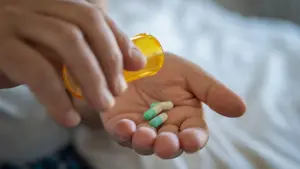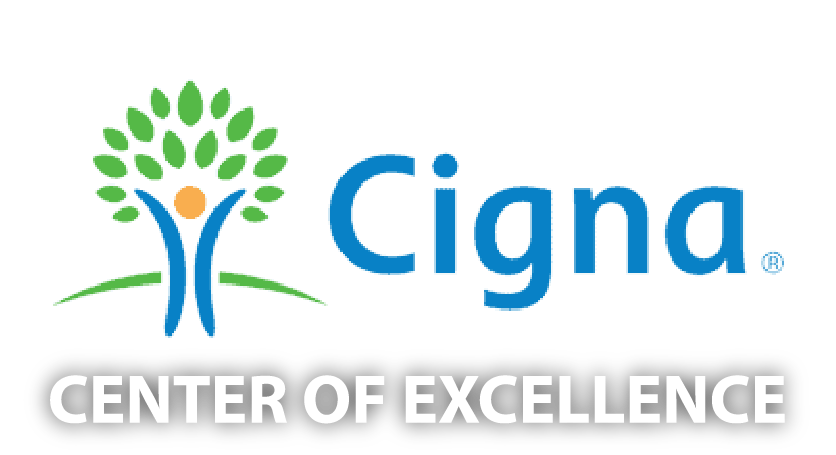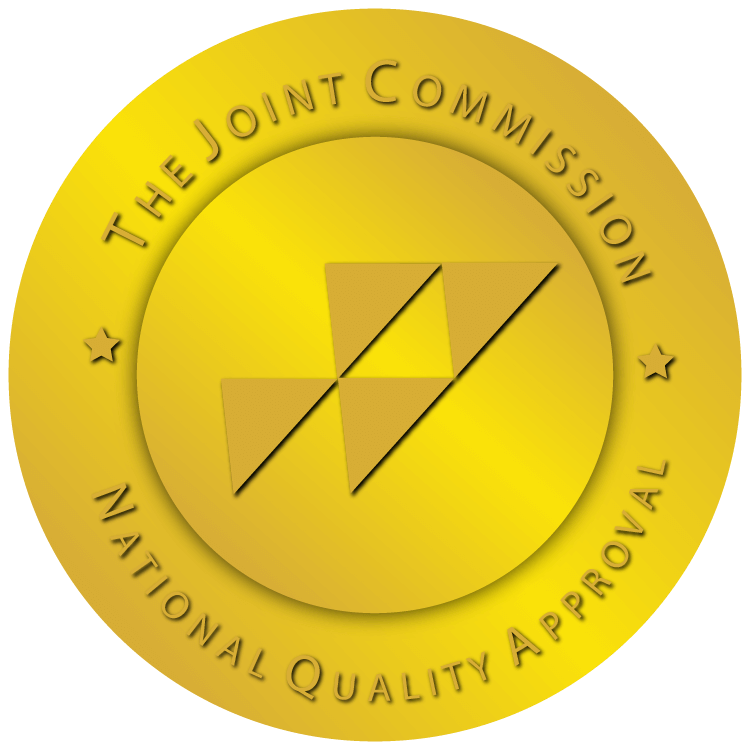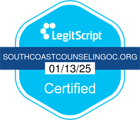Drugs and alcohol affect both the body and mind, and the signs of substance abuse can be easy to miss or misunderstand.
In the following sections, we’ll go over the common red flags of substance abuse. Recognizing these signs early can help you take the first steps toward getting help.

Physical Signs of Drug or Alcohol Use
When someone is using drugs or drinking too much alcohol, their body often shows signs before they say anything. Paying attention to physical changes can help you understand if something is wrong.
These signs don’t always mean a person has a substance use problem, but they can be important red flags.
Unusual Smells
Certain drugs and alcohol leave behind noticeable smells. Someone struggling with alcohol use might have a strong odor of alcohol on their breath, even in the morning.
Other substances, like marijuana, can leave a smoky or skunky scent on clothes and hair. Harder drugs, like meth or heroin, may cause a strange chemical smell on the skin or breath.
Physical Symptoms
Physical symptoms can also be telling. You might see:
- Sudden weight loss or gain
- Frequent nosebleeds (especially with cocaine use)
- Needle marks on the arms (for those injecting drugs)
- Shaky hands
- Slurred speech
- Dilated (large) or pinpoint (small) pupils
- Overly energetic and restless behavior
- Appearing drowsy or spaced out
Changes in Appearance and Hygiene
You might notice that a person no longer cares about how they look. Maybe they stop brushing their hair, forget to shower, or wear the same clothes for days.
Their skin might look dull or unhealthy, and their eyes could be red or glassy. If they used to take pride in their appearance but now seem unbothered, it could be a sign of a deeper struggle.
Withdrawal Symptoms
If someone is using drugs or alcohol regularly, they may experience withdrawal symptoms when they don’t have access to their substance. These symptoms can be scary and uncomfortable.
Common withdrawal signs include:
- Sweating
- Shaking or quivering
- Nausea
- Headaches
- Trouble sleeping
- Extreme anxiety
- Depression
- Aggressive behavior
Signs of Health Issues and Substance Abuse
Long-term substance use can also harm the body in serious ways. Drinking too much alcohol, for example, can damage the liver and lead to yellowing of the skin (jaundice). Some drugs weaken the immune system, making a person get sick more often.
According to a study published in the Public Health Reviews journal, Adulthood sees the highest rates of medical conditions (like cancer, heart disease, and STDs) and mental health issues (such as bipolar disorder, anxiety, and antisocial personality disorder), many of which stem from substance abuse.
Behavioral and Emotional Red Flags
Substance use affects the brain and can change how a person feels, acts, and handles responsibilities. This can be hard to see, especially if it’s someone you care about.
Sudden Mood Swings or Irritability
Someone might seem happy one moment and angry or withdrawn the next. Small things may irritate them, and their reactions can seem extreme.
This happens because substances change brain chemicals, creating short-term pleasure but leading to anxiety, depression, or frustration when they wear off. If you’re experiencing mood swings, it’s not a weakness, it’s a sign that your body and mind need help.
Secretive or Avoidant Behavior
Someone using drugs or alcohol may act differently, avoiding eye contact, giving vague answers, or disappearing without explanation. They might become secretive, hide things, or act defensively. This often comes from fear or shame, as they may worry about being judged.
If a loved one is acting this way, don’t take it personally. Instead of accusing them, show support with a gentle approach, like asking, “I’ve noticed you seem distant. Is everything okay?”

Decline in Performance at Work or School
Substance use can make it hard to focus, stay motivated, or keep up with responsibilities. If a person is struggling, they might start skipping work or school, turning in assignments late, or making more mistakes than usual. Their grades or job performance might drop, and they could face warnings from teachers, bosses, or coworkers.
Sometimes, the person loses interest in things they once cared about. Maybe they used to love playing sports, doing hobbies, or hanging out with friends, but now they don’t seem to care. It’s not that they don’t want to do those things – it’s that substance use is taking over their life.
Social and Relationship Changes
You may notice that someone who was once close to their family and friends is now pulling away. They might spend time with new people or get into arguments more often.
New Social Circles or Risky Associations
Someone using substances may start hanging out with a different crowd. They might spend time with people who encourage their drug or alcohol use or who don’t ask questions about their behavior. If they suddenly have new friends and seem tight-lipped about them, it could be a sign that they are in an environment that isn’t healthy.
This change can be worrying, especially if the person starts engaging in risky behavior. If you’re noticing this in yourself, ask yourself if these new relationships are truly helping you or if they are making things worse.
Increased Conflict or Isolation
Substance use can make a person more irritable, defensive, or easily frustrated. They might argue more often with loved ones or shut down completely. You may notice them becoming more secretive, avoiding deep conversations, or refusing to talk about their behavior.
If you’re the one experiencing this, you might feel like no one understands you. Maybe you get upset more easily, or you push people away because it feels easier than explaining what’s going on.
Financial and Legal Warning Signs
You may notice sudden financial issues, missing valuables, or even run-ins with the law. These signs can be scary, but they are also signals that help is needed.
Unexplained Money Problems
When money runs out, some people may feel desperate and start selling their belongings or even taking from others. Maybe you’ve noticed things missing from your home, like jewelry, electronics, or other valuables. Some may start pawning items or selling their personal belongings just to get money for drugs or alcohol.
If you’re in this situation yourself, you might feel embarrassed or stuck, unsure of how to break the cycle. Some people want to help, whether it’s friends, family, or professionals who understand what you’re going through.
Legal Troubles Linked to Substance Use
Substance use can lead to risky behavior and legal issues, like DUIs, drug possession, or accidents. Some may even face arrests for trespassing, theft, domestic abuse, or other crimes.
Addressing the problem now is better than letting it worsen. Getting help through treatment, legal support, or talking to someone can make a difference.
What to Do If You Recognize These Signs
These signs may be overwhelming or even scary, but it’s important to approach the situation with care and understanding.
How to Approach a Loved One
If someone you love is showing signs of substance abuse, it’s natural to feel concerned, but it’s important to approach them in a gentle, non-judgmental way.
Try to start a conversation with kindness. It can take time for someone to admit they need help, so be patient and keep the lines of communication open.
Seeking Professional Help and Treatment Options
There are many treatment options available, such as therapy, confidential counseling, or support groups, that can guide someone through recovery.
These programs can help address the root causes of substance abuse and provide strategies for managing cravings and emotions. Reaching out to a medical professional, therapist, or addiction specialist is a great first step.
Support Resources for Families and Individuals
Finding support for yourself is just as important. Family therapy or support groups can provide a safe space to share experiences and learn how to cope.
It’s okay to reach out for support, whether through groups, counseling, or trusted individuals in your life. You don’t have to go through this alone.
| For more information on substance abuse signs, check out our guide on noticing the signs of meth use and finding support. |
If you’re noticing signs of substance abuse in yourself or a loved one, South Coast Counseling offers the support and treatment needed to help you find your way back.













